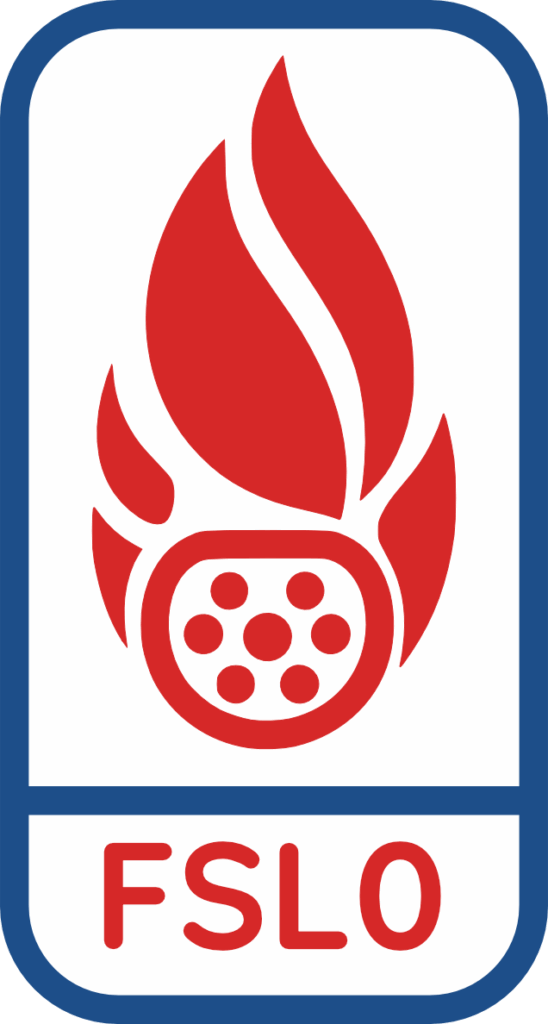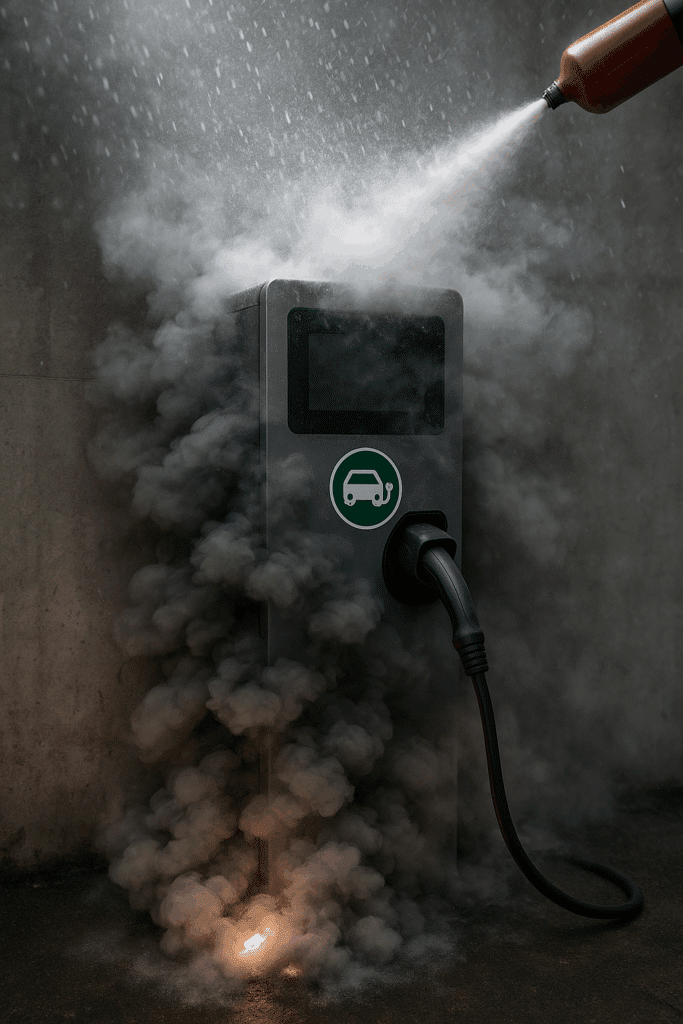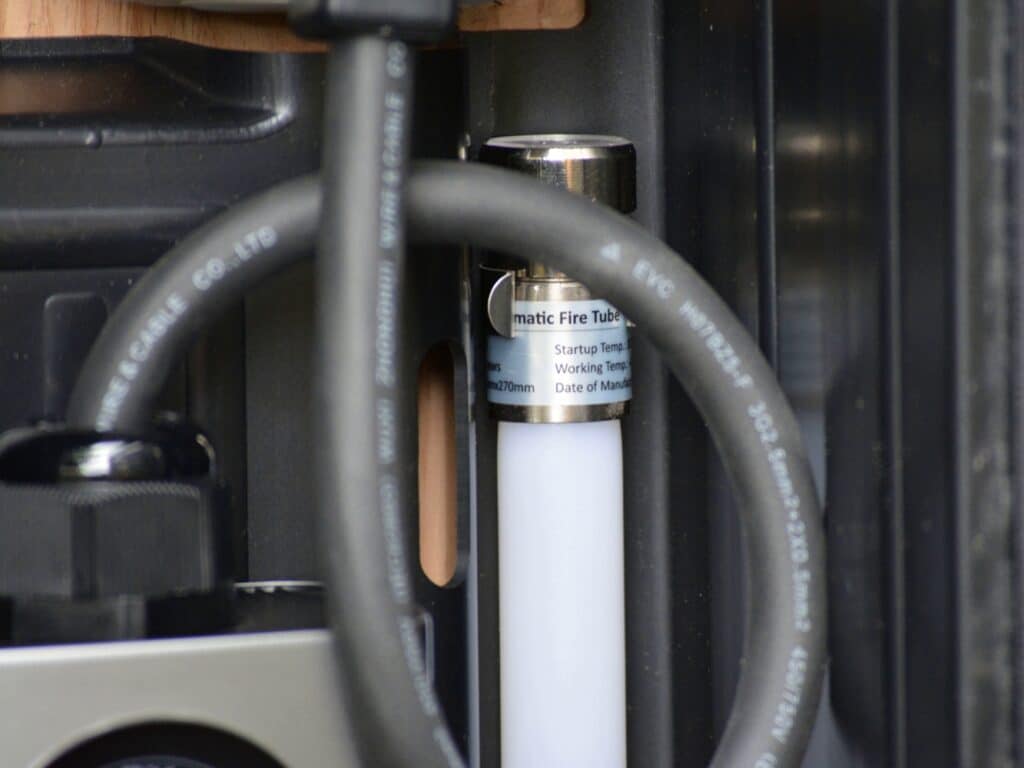





MAT
Use the EVnoX MAT to contain fires.
A special graphite that will expand when in contact with direct flames to create a thermal barrier between compartments.
STICK
With the EVnoX STICK even the smallest wallbox can be equipped with an fire extuingisher. with a length of just 120mm it is easy to implement in any design.
TUBE
The EVnoX TUBE is our premium fire extinguisher, designed to suppress any ignition source, suitable for both AC residential and DC commercial Chargers.
Fire Safety Level : 2025
How do you know if a charging station is truly safe? Power and design are easy to compare, but fire safety has always been a mystery.
With the Fire Safety Level (FSL) we make it simple. From FSL0 to FSL3+, you instantly see how well a product is protected. A transparent way to understand safety, just like you check charging speed or warranty.
We believe safety should be measurable and visible. With FSL, the market finally has a language for fire protection. Dowload the FSL:2025 for free and contribute to a safer charging experience

EVnoX develops advanced firefighting solutions for EVSE, offering easy plug and play systems that make any charger safe, anywhere. Our products combine reliability, rapid deployment, and compatibility, ensuring effective fire protection for all charging environments while simplifying installation and maintenance.
Contact us today to discover how EVnoX can make your charger safer.
Making Every EVSE Safer
ChatGPT zei:

FSL:2025 – a new standard in safety
Join the development of FSL:2025, the new Fire Safety Level standard for EVSE and battery enclosures. Contribute expertise, testing data, and feedback to shape global safety benchmarks.
Collaborate on the FSL:2025
FAQ
FSL:2025 classifies fire safety for EVSE into levels, helping manufacturers design and certify chargers according to risk. The levels are:
- FSL0: No fire protection
- FSL1: Fireproof enclosure
- FSL2: Fire suppressant materials
- FSL3: Active extinguisher
- FSL3+: Active extinguisher with automatic alarm
Fire safety is critical for EVSE installations because chargers handle high electrical currents and are often installed in public or residential areas. Without proper protection, overheating or component failure can lead to fires, causing property damage, personal injury, downtime, and reputational risks for manufacturers and operators.
The most common causes of EVSE fires include electrical faults such as short circuits, overheating from high currents, defective components, poor insulation, water ingress, and mechanical damage. Improper installation, lack of maintenance, and using substandard materials can also significantly increase fire risk.
EVSE fires can cause severe property damage, destroy charging equipment, and endanger nearby structures. They pose serious safety risks to users, including burns, smoke inhalation, and electric shock. Fires can lead to operational downtime, costly repairs, liability issues, and reputational damage for manufacturers and operators.
Fire safety standards protect consumers and installers by setting clear requirements for design, materials, and testing of EVSE. They ensure chargers resist ignition, contain fires, and include suppression or alarm systems. Compliance reduces the risk of accidents, prevents property damage, and provides confidence that equipment is safe and reliable in daily use.
In FSL:2025, passive fire protection prevents or slows fire spread using materials and enclosure design, such as fireproof housings or intumescent liners. Active fire protection intervenes during a fire, using devices like extinguishers, suppression systems, or automatic alarms. Together, they provide layered safety, reducing risk and protecting users and property.
Manufacturers can implement FSL:2025 in existing products by evaluating current designs against the standard’s risk levels, upgrading enclosures with fire-resistant materials, adding suppressant systems or alarms where required, and conducting standardized testing. Documentation and certification ensure compliance, while retrofitting improves safety without redesigning the entire product.





